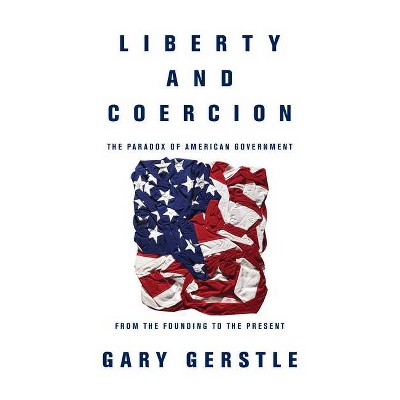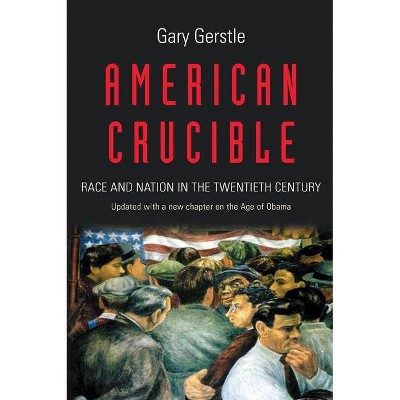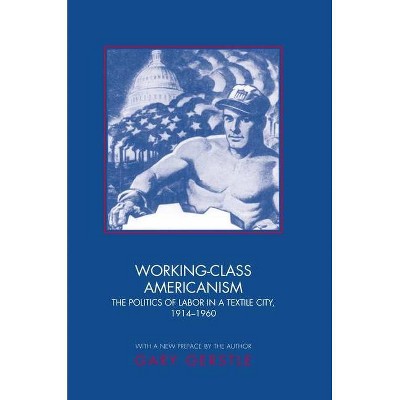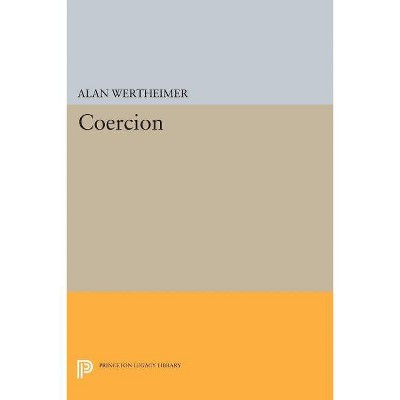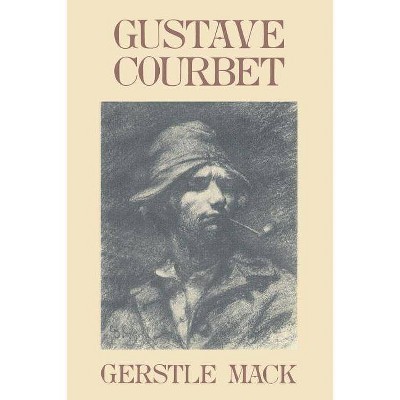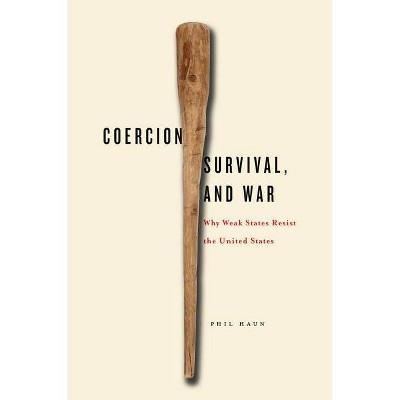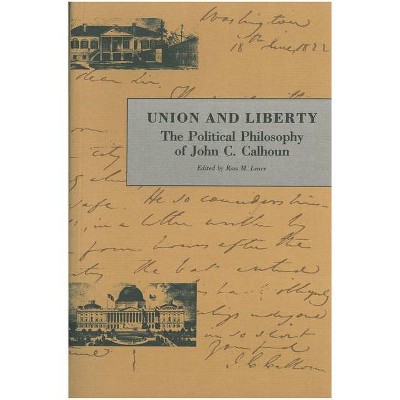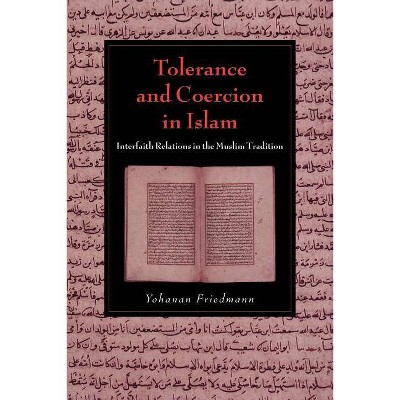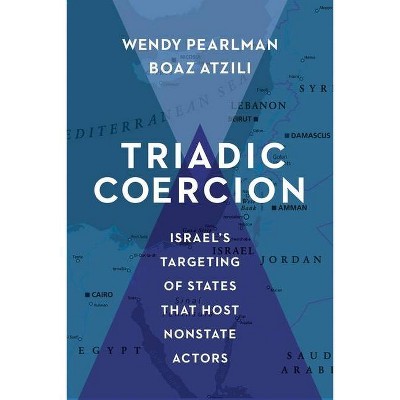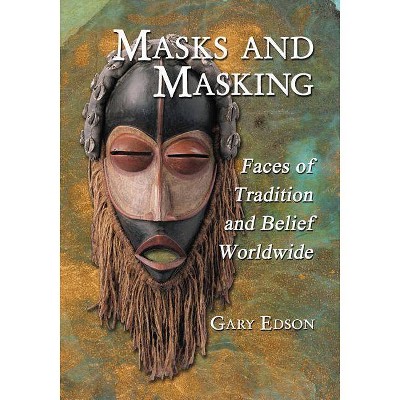Liberty and Coercion - by Gary Gerstle (Paperback)
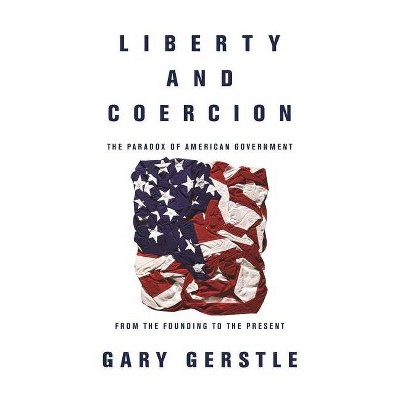
Similar Products
Products of same category from the store
AllProduct info
<p/><br></br><p><b> Book Synopsis </b></p></br></br><p><b>How the conflict between federal and state power has shaped American history</b> <p/>American governance is burdened by a paradox. On the one hand, Americans don't want big government meddling in their lives; on the other hand, they have repeatedly enlisted governmental help to impose their views regarding marriage, abortion, religion, and schooling on their neighbors. These contradictory stances on the role of public power have paralyzed policymaking and generated rancorous disputes about government's legitimate scope. How did we reach this political impasse? Historian Gary Gerstle, looking at two hundred years of U.S. history, argues that the roots of the current crisis lie in two contrasting theories of power that the Framers inscribed in the Constitution. <p/>One theory shaped the federal government, setting limits on its power in order to protect personal liberty. Another theory molded the states, authorizing them to go to extraordinary lengths, even to the point of violating individual rights, to advance the good and welfare of the commonwealth. The Framers believed these theories could coexist comfortably, but conflict between the two has largely defined American history. Gerstle shows how national political leaders improvised brilliantly to stretch the power of the federal government beyond where it was meant to go--but at the cost of giving private interests and state governments too much sway over public policy. The states could be innovative, too. More impressive was their staying power. Only in the 1960s did the federal government, impelled by the Cold War and civil rights movement, definitively assert its primacy. But as the power of the central state expanded, its constitutional authority did not keep pace. Conservatives rebelled, making the battle over government's proper dominion the defining issue of our time. <p/>From the Revolution to the Tea Party, and the Bill of Rights to the national security state, <i>Liberty and Coercion</i> is a revelatory account of the making and unmaking of government in America.</p><p/><br></br><p><b> From the Back Cover </b></p></br></br><p>"Brilliant."<b>--Michael Kazin, <i>Politico</i></b></p><p>"A landmark work of political history that will make liberals, conservatives, and radicals rethink their assumptions about the weak or strong American state. With great authority and muscular prose, Gerstle explains the development of the United States as a narrative of continuities and discontinuities, growing centralization, and enduring limits on federal power."<b>--Michael Kazin, author of <i>American Dreamers</i></b></p><p>"A beautifully intricate history of the twin impulses of American political life: the movement toward a more powerful state, and away from one. Gary Gerstle tracks this contradiction across its many different dimensions--from the states to the federal government, and from private morality to public policy--to shed much-needed light on the deep-seated conflicts of the present."<b>--David Runciman, author of <i>The Confidence Trap</i></b></p><p>"Gary Gerstle is one of the country's best and most thoughtful historians. He specializes in shedding light on important parts of our national story that we have overlooked. After reading <i>Liberty and Coercion</i> you will never be able to think about our founding or our present in quite the same way. Gerstle shows persuasively how both impulses were present at the creation of our republic and how the states retained an enormous reservoir of coercive power long after the Bill of Rights was adopted. This is a genuinely pathbreaking work."<b>--E. J. Dionne Jr., author of <i>Souled Out</i> and <i>Our Divided Political Heart</i></b></p><p>"This impressive analytical history of the liberal state--liberal in its quest for freedom, statist in its forcible claims and behavior--offers a compelling, original framework within which to consider some of the most vexing issues in American life, from the founding to the present. Written with verve and based on a depth of understanding, <i>Liberty and Coercion</i> is sweeping, reflective, and significant."<b>--Ira Katznelson, author of <i>Fear Itself: The New Deal and the Origins of Our Time</i></b></p><p>"This outstanding, bold, and provocative book offers a sophisticated but very accessible exploration into the relationship between the state and governance throughout U.S. history. Gerstle writes with authority, economy, and clarity, and I can't think of another work like this one. It will become an important part of the conversation about the character of American politics."<b>--Steven Hahn, author of <i>A Nation under Our Feet</i></b></p><p>"As <i>The Federalist Papers</i> pointed out, an enduring constitution must create not only a government strong enough to accomplish intensely difficult tasks but also controls over the government that preserve liberty and autonomy. Tracing, explaining, and evaluating these delicate balances over three centuries require an extraordinary historian. That person is Gary Gerstle and his book <i>Liberty and Coercion</i> will shape how we understand American governance for years to come."<b>--Jennifer Hochschild, coauthor of <i>Creating a New Racial Order</i></b></p><p>"<i>Liberty and Coercion</i> is a much-needed, cogent, and deftly executed exploration of the American state. Gerstle's lucid and widely informed argument provides insights never advanced before and will attract a wide readership. This book is a home run."<b>--Daniel Carpenter, Harvard University</b></p><p/><br></br><p><b> Review Quotes </b></p></br></br><br><i>Liberty and Coercion</i> is a pitch-perfect analysis of the contradictions built into America's federalist system. It's serious and disciplined yet piquant, provocative, and highly readable.<b>---Mark Joseph Stern, <i>Slate</i></b><br><br><i>Liberty and Coercion</i> is a towering achievement, bristling with stimulating arguments and historical erudition.<b>---Desmond King, <i>Financial Times</i></b><br><br>[A] pathbreaking interpretive approach. . . . By no means is this a book for historians only. It should be widely read, its arguments widely considered. And the evidence Gerstle adduces ought to be sobering for everyone.<b>---James Banner, <i>Weekly Standard</i></b><br><br>A masterful overview of the dynamics that have shaped American politics. . . . Anyone who shares Gerstle's conviction that our democracy should be moving toward greater equality and inclusion, and who seeks a clearer understanding of what we are up against as we work toward those ideals, should read <i>Liberty and Coercion</i>.<b>---James Kloppenberg, <i>Commonweal</i></b><br><br>A much-needed addition, and in many ways a corrective, to the literature. . . . <i>Liberty and Coercion</i> is a pleasure to read; it offers a fresh and compelling perspective on the history of American government.<b>---Paul E. Herron, <i>The Journal of Southern History</i></b><br><br>A tour de force account of American governance.<b>---Thomas Rodgers, <i>Reviews in History</i></b><br><br>Gary Gerstle's complex book shines a light down countless twisted alleyways and switchbacks of America's past. . . . [An] enlightening, alarming analysis.<b>---Elizabeth Cobbs, <i>Times Higher Education</i></b><br><br>Immensely illuminating. . . . It is no surprise that <i>Liberty and Coercion</i> is already winning awards.<b>---Sanford Levinson, <i>The Register</i></b><br><br>Like Margot Canaday's <i>The Straight State: Sexuality and Citizenship in Twentieth-Century America</i> (2011), <i>Liberty and Coercion</i> has harnessed several historiographic traditions that have much to say to each other yet have failed to engage one another for too long. From the APD side of the table, scholars like Ira Katznelson, Jim Morone, and Rogers Smith have done the same. Gerstle has enriched that conversation and staked out an important place for historians in it.<b>---Brian Balogh, <i>American Historical Review</i></b><br><br>New York Times Book Review Editors' Choice<br><br>Outstanding. . . . It is hardly possible to do justice to this rich book in a few simplifying paragraphs; rarely have I found myself more engaged and challenged by a work of history.<b>---François Furstenberg, <i>Journal of American History</i></b><br><br>This is a powerful and important book that will reshape the way most readers think about United States history and governance. Gary Gerstle . . . has drawn on a lifetime of reading and teaching to produce this masterwork. . . . A highly readable, deeply sourced, magisterial narrative.<b>---David C. Unger, <i>Survival</i></b><br><br>Winner of the 2016 Ellis W. Hawley Prize, Organization of American Historians<br><br>[A] brilliant work of American political history.-- "National Book Review"<br><br>[A] clear, wide-ranging work of political history. . . . He develops considerable evidence for improvisational state-building and draws out the problematic implications of relying on strategies that effectively expand federal power without the accompanying constitutional authority.-- "Choice"<br><br>[A] triumph.-- "Bookforum"<br><br>[A]n informative and sophisticated account of the impact and import of this contradiction throughout American history. . . . [A] thoughtful and timely book about the character and constraints of American politics.-- "Tulsa World"<br><br>Provocative.<b>---Alan Ehrenhalt, <i>Governing Magazine</i></b><br><br>Terrific, engaging and deeply analytical. . . . An ambitious reinterpretation of American political history from the founding to the present.-- "New York Times Book Review"<br><p/><br></br><p><b> About the Author </b></p></br></br><b>Gary Gerstle</b> is the Paul Mellon Professor of American History at the University of Cambridge. His many books include <i>American Crucible</i> and <i>The Rise and Fall of the New Deal Order</i> (both Princeton). He lives in Cambridge, England, and Cambridge, Massachusetts.
Price History
Price Archive shows prices from various stores, lets you see history and find the cheapest. There is no actual sale on the website. For all support, inquiry and suggestion messagescommunication@pricearchive.us
